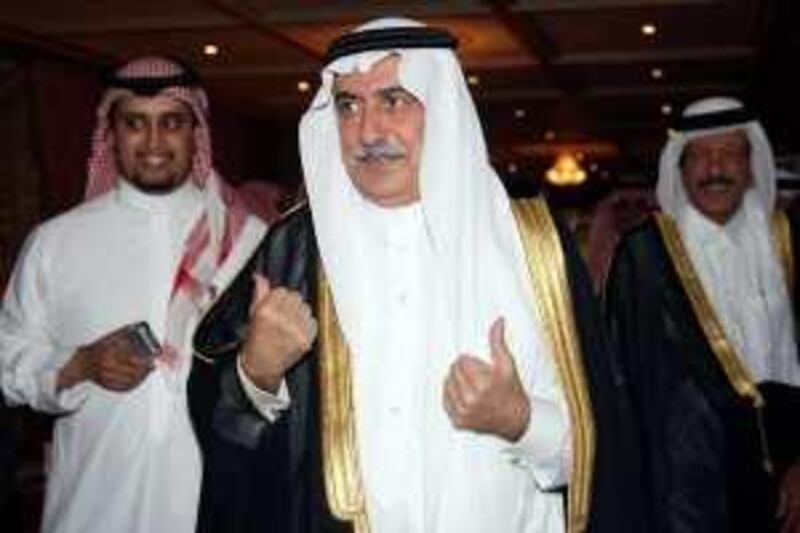Saudi Arabian shares rallied 3 per cent yesterday to close at their highest level in 11 months after the kingdom's finance minister confirmed government plans to invest US$400 billion (Dh1.46 trillion) over five years would continue even after the withdrawal of fiscal stimulus as the economy recovered. The Gulf country announced last year the massive development and investment programme designed to bolster the economy against the global credit crisis.
"With regard to Saudi Arabia, if there is a move to reduce stimulus ? the government investment programme will continue. The issue of the investment programme of the government will continue as it does not have inflationary effects," the finance minister, Ibrahim al Assaf, told reporters yesterday. Mr al Assaf's comments helped the Tadawul All Share Index rally in the week's first day of trading yesterday.
Saudi Arabia, the largest OPEC exporter, suffered when the financial crisis sapped demand for oil, driving prices down from record highs of $147 a barrel in July last year. The decline in prices led to questions over development plans in the kingdom, where oil accounts for more than half of the economy. Saudi Arabia's economy is expected to swing to a deficit this year for the first time in seven years due to higher public spending and reduced oil revenues.
Government officials in February unveiled plans to spend $400bn on infrastructure projects in the next five years, with the country hoping to take advantage of lower construction costs during the financial crisis. A key aim of the expenditure is to create jobs and move Saudi's economy away from oil by building industrial cities, such as the $120bn King Abdullah Economic City. At the time, officials said that embarking on the building projects during the aftermath of the economic crisis would help save between 30 and 40 per cent on construction costs compared with six months earlier.
Mr al Assaf said Saudi Arabia agreed with estimates by the IMF that non-oil GDP would grow more than 3 per cent next year. He declined to give estimates for total real growth for this year or next, but the IMF has said the Saudi economy was expected to shrink by 1 per cent this year. Mr al Assaf also declined to give inflation forecasts but said he did not expect inflationary pressure to return to recent highs. Inflation reached double-digit levels last year as global commodities prices increased.
Inflation has been slowing in Saudi Arabia as commodity prices slumped and a stronger US dollar helped reduce import costs in the kingdom, which pegs its riyal to the dollar. Annual inflation fell to 4.2 per cent in July, its lowest level in two years. "I don't think we will have inflationary pressures that we saw previously because a large part of it was due to world prices," he said. The Tadawul All Share Index rose to 6130.95 at the close of trading. Leading the advances were Al Rajhi Bank, the largest bank in Saudi Arabia by market value, and Samba Financial Group.
Al Rajhi climbed 7.9 per cent to 75.25 riyals (Dh73.70). Samba Financial, the second-largest bank in Saudi Arabia, rose 9.6 per cent to 50.75 riyals in the first day of trading since September 16 when the market closed for a week's public holiday. * with agencies tarnold@thenational.ae





